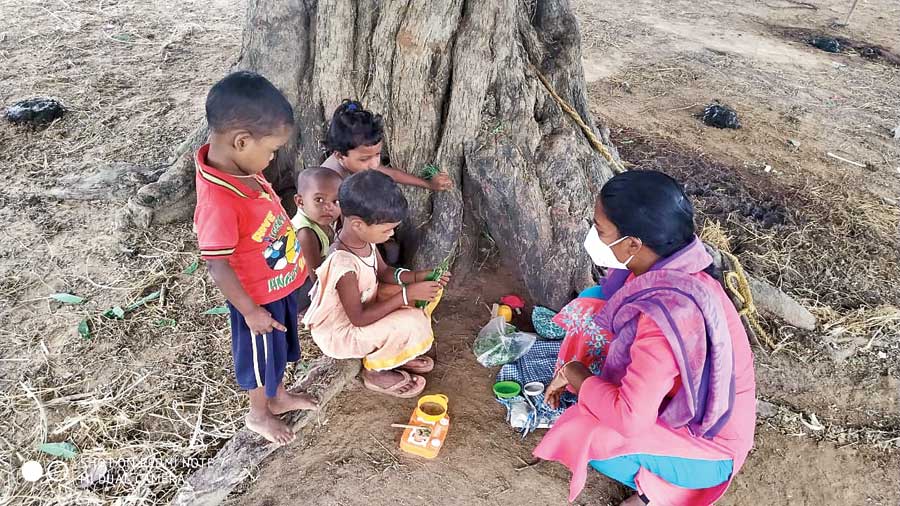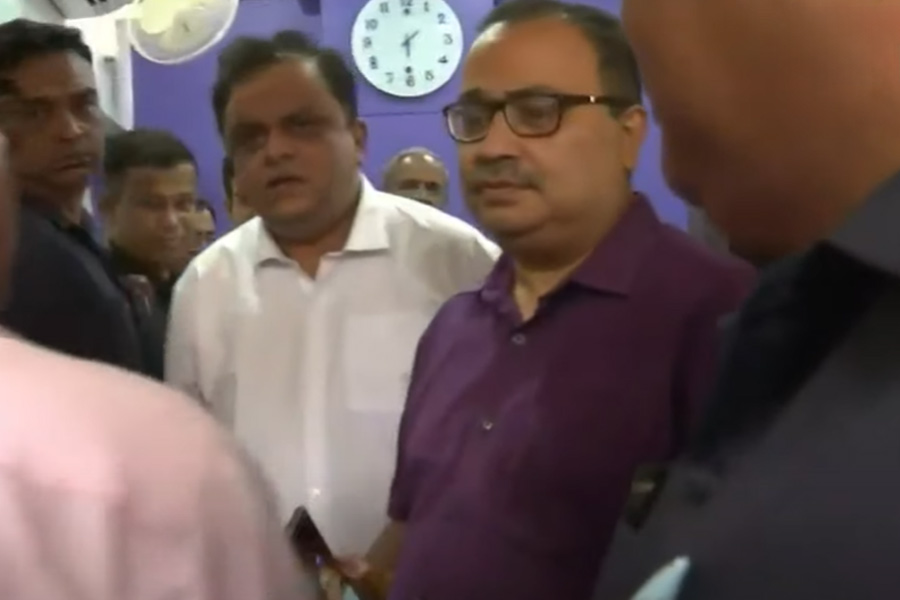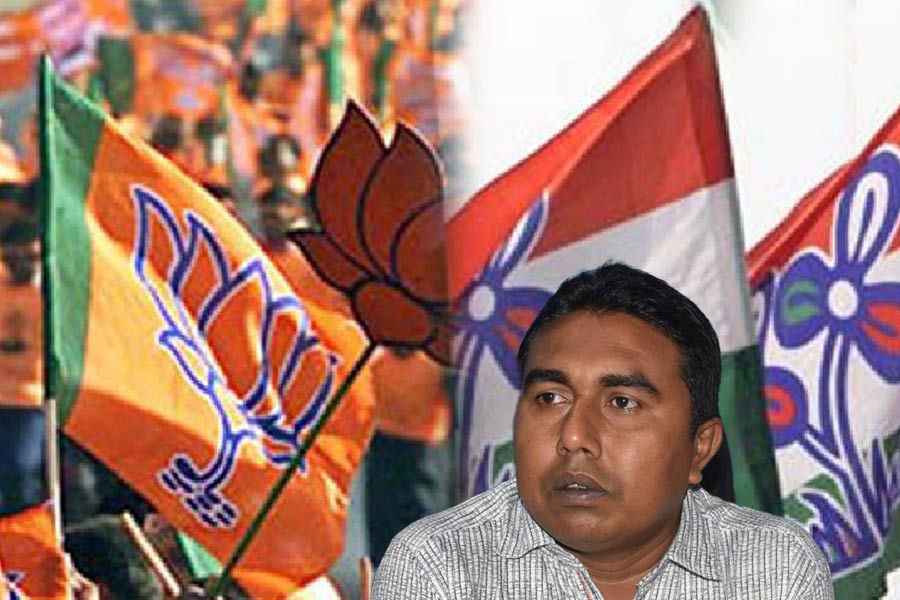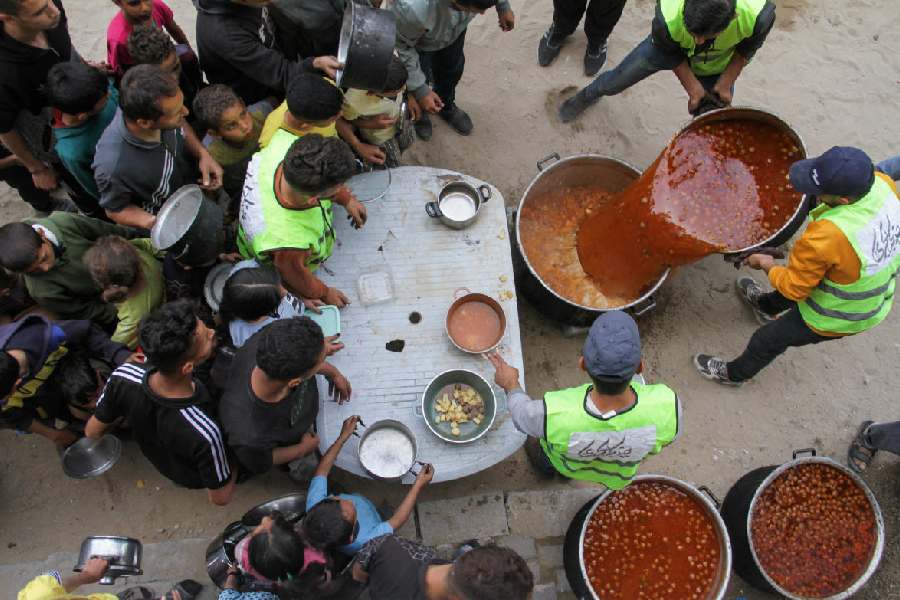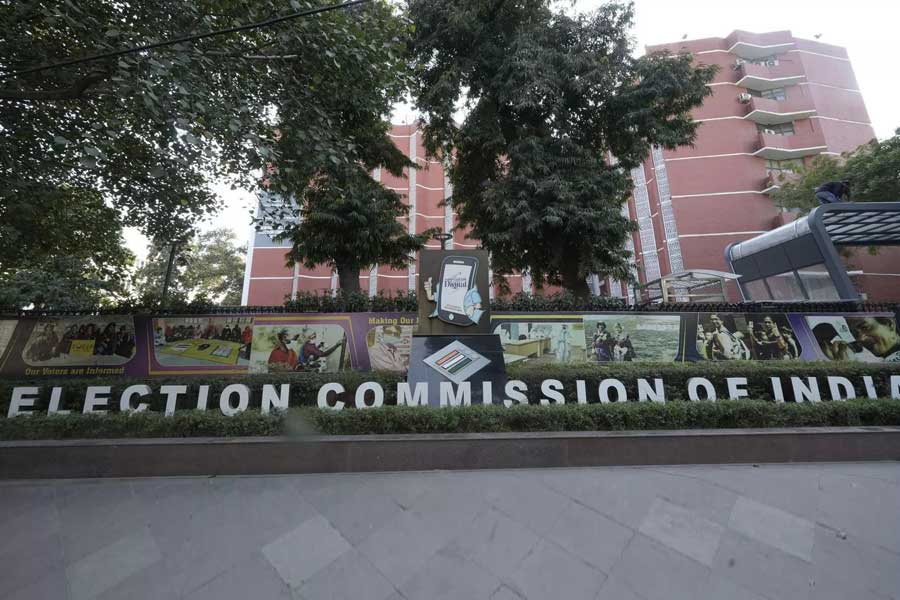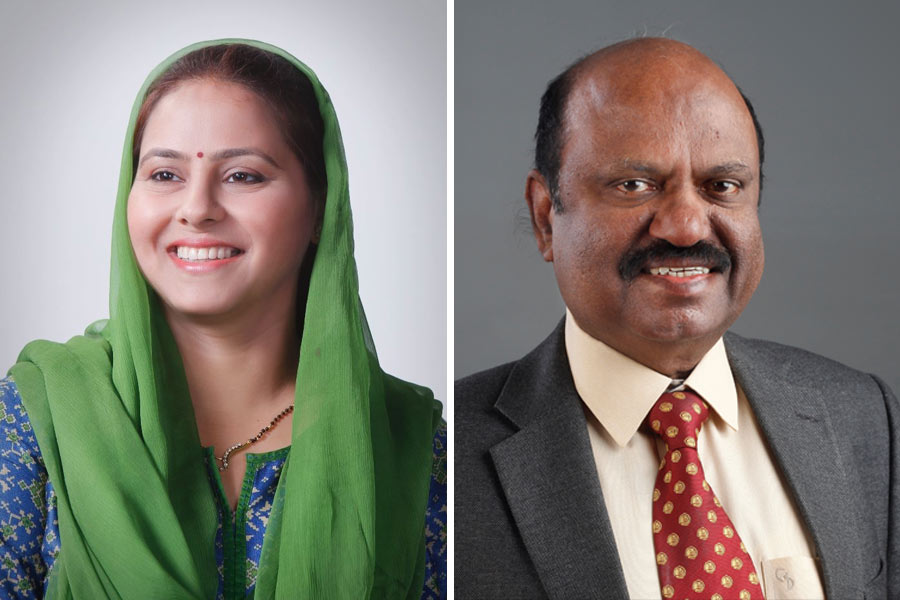A global NGO has been active during the pandemic spreading pre-school education in four blocks of Jharkhand at a time when Anganwadi centres meant for this purpose are closed.
Its efforts are a testament to this year’s theme of International Literacy Day, “Literacy, teaching and learning in the Covid-19 crisis and beyond”. The day is observed on September 8 every year.
The state branch of Save the Children, a global NGO working for children’s rights, is running the programme in two blocks each of Gumla and West Singhbhum districts in association with two partner organisations and other stakeholders.
“We were already working on the project for strengthening pre-school education and still continuing during the pandemic with help from others,” said Mahadev Hansda, state leader of Save the Children.
He said they were working in Bharno and Sisai blocks of Gumla districts and Tonto and Tantnagar blocks in West Singhbhum.
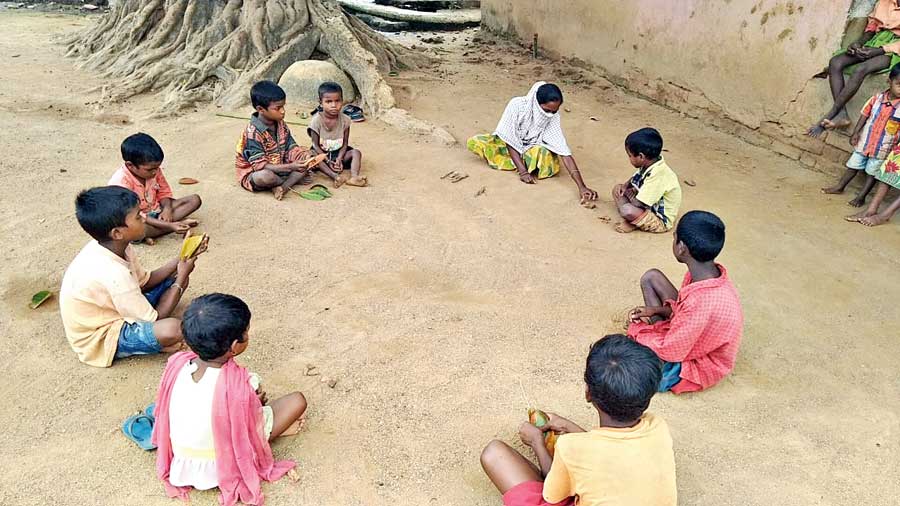
Academic support fellows using easily available aids such as vegetables, pebbles and twigs to conduct pre- school education among children in Gumla district Telegraph picture
The NGO has partnered with Lohardaga Gram Swaraj Sansthan in Gumla and The Centre for Social Welfare and Rehabilitation in West Singhbhum for conducting the programme in 477 Anganwadi centres, he said. They have also involved Anganwadi workers, teachers and guardians as stakeholders in the programme, he added.
“We conduct the programme through a group of academic support fellows (ASFs) who used to visit Anganwadi centres earlier. They are now visiting the children’s homes as the centres are closed during the pandemic,” Hansda said.
He said they help children aged between 3 and 6 years to learn alphabets, colours, patterns, shapes and sizes.
“We now visit the houses to show mothers how to teach elementary literacy and mathematics, using such aids which are easily available in and around home like vegetables, pebbles and twigs,” said Sunanda Mishra, an academic support fellow working in Bharno. She said they sometimes also use printed materials.
Once the mothers learn how we communicate with their children, they continue doing the same themselves, she said.
Vegetables like potato, tomato, beans and lady’s finger and pebbles are used to make the children familiar with colours, shapes and sizes and even counting.
“Yes, their method is very simple and I can now help my child learn,” said Mamta Barwar of Bharno basti, whose husband is a marginal farmer.
“We have plans to continue the programme with primary school children also and have already conducted training programmes with teachers,” Hansda said.
He said they expected the teachers to carry on the mission for spreading literacy as their programme will not last forever.

